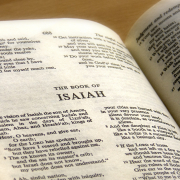Dennis Finds Meaning and Messiah through the Passover
As we celebrate Passover, a season steeped in tradition and remembrance, many of us will gather with family to retell the story of our liberation from Egypt. We’ll ask the four questions, dip parsley in salt water, and savor matzah—all symbolic acts that connect us to generations past, and our redemption in the future. But what if the redemption promised by the Passover can be experienced today?
Dennis’s Early Years
Dennis grew up immersed in Jewish life. Raised in the Washington D.C. area, his childhood revolved around synagogue attendance—Friday nights and Saturday mornings filled with liturgy, and summers spent at Jewish camp. Yet he remembers a certain empty quality to it all, a feeling of going through the motions within an “upper middle class country club” where faith felt distant.
“God was not there,” he recalls, describing the disconnect he experienced despite faithfully participating in religious rituals. This emptiness led him on a decades-long search for meaning after leaving home for college. He majored in philosophy, exploring Eastern religions and worldly pleasures—as he puts it: “bongs, beer, blacklights, yoga, transcendental meditation.” But each venture left him feeling unfulfilled, echoing the question posed by Dionne Warwick’s song that became his theme: “What’s it all about, Alfie?”
A Confrontation at a Church
Years later, married life brought its own challenges. In April 1992, a business associate, Woody, invited Dennis to attend a church service where a Jewish man would be speaking on the connection between Jesus and Passover. Dennis agreed, initially with the intention of disproving what he expected to be misguided claims. He was skeptical—deeply so. The idea of Jesus being Jewish, let alone the Messiah, felt fundamentally wrong.
That morning began in turmoil. Dennis had a heated argument with his wife that left him questioning whether to even go to the service. As they fought in the car in the church parking lot, Woody waved from the entrance—a silent signal that Dennis felt compelled to acknowledge. He waved back. “Well,” Dennis wryly remembers thinking, “I guess we can’t leave now.”
Little did he know this reluctant attendance would become a turning point. The speaker began unraveling a truth Dennis hadn’t considered: Jesus as the fulfillment of Passover. Having led countless seders himself, Dennis was profoundly unsettled. This wasn’t merely another theological debate; it felt like a challenge to the very foundation of his identity.
Attempts to Disprove
After the service, Dennis challenged the Jewish preacher, Scott, to meet with him so he could disprove what he said. They ended up having a rigorous seven-week series of one-on-one meetings. Dennis bombarded Scott with questions—the virgin birth, the need for blood sacrifice in Scripture, the concept of sin within a Jewish framework. Each time, Scott responded not with dogma, but with Scripture itself, patiently guiding Dennis through the Tanakh.
The final conversation centered on a critical question: if Jesus is the Messiah, why hadn’t He ushered in an era of peace and perfection? The answer lay in Daniel 9, a prophetic passage detailing the precise timing of the Messiah’s arrival and sacrifice before the destruction of the Second Temple in 70 CE. For Dennis, it was a revelation. The prophecy aligned perfectly with historical events he already knew.
The Day Everything Changed
The culmination of Dennis’s journey arrived unexpectedly during a Shabbat service shortly thereafter. As it was close to May 14, the congregation celebrated the re-establishment of the State of Israel by singing Hatikvah, Israel’s national anthem. As he sang, Dennis found himself overwhelmed by emotion. Holding his young daughter in his arms, he wept uncontrollably.
“At that moment,” Dennis recalls, “I understood that Jesus was the Messiah of Israel. He was not just a national Messiah, but He was a personal Messiah. He was my Messiah.”
This heartfelt acknowledgement led Dennis into a new life of walking with Jesus as his Messiah and Lord. As he read through the New Testament, he recognized the Jewishness of his Messiah and how he is the fulfillment of the redemption promised by the Passover.
Redemption in the Fulfillment of Passover
This Passover, as you retell the story of liberation, consider this: The exodus wasn’t simply about escaping physical slavery; it pointed to a deeper longing for spiritual redemption. Perhaps the ultimate fulfillment of Passover isn’t just remembering what happened then, but recognizing the One who promised to bring a deeper redemption to pass today.
Like Dennis, you may have questions, doubts, or even resistance. But we invite you to explore the Scriptural evidence for yourself.
To listen to Dennis’s story in his own words, go to https://ifoundshalom.com/dennis-karp
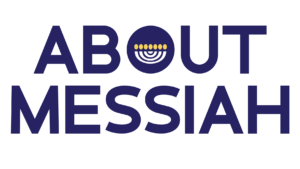
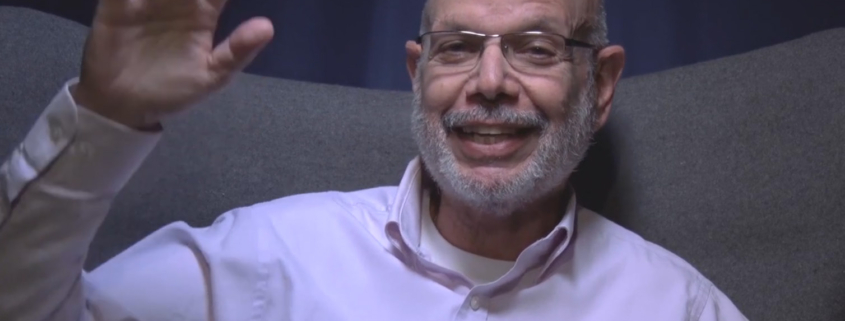
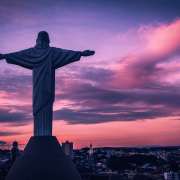
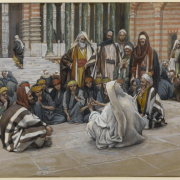 Public Domain
Public Domain
